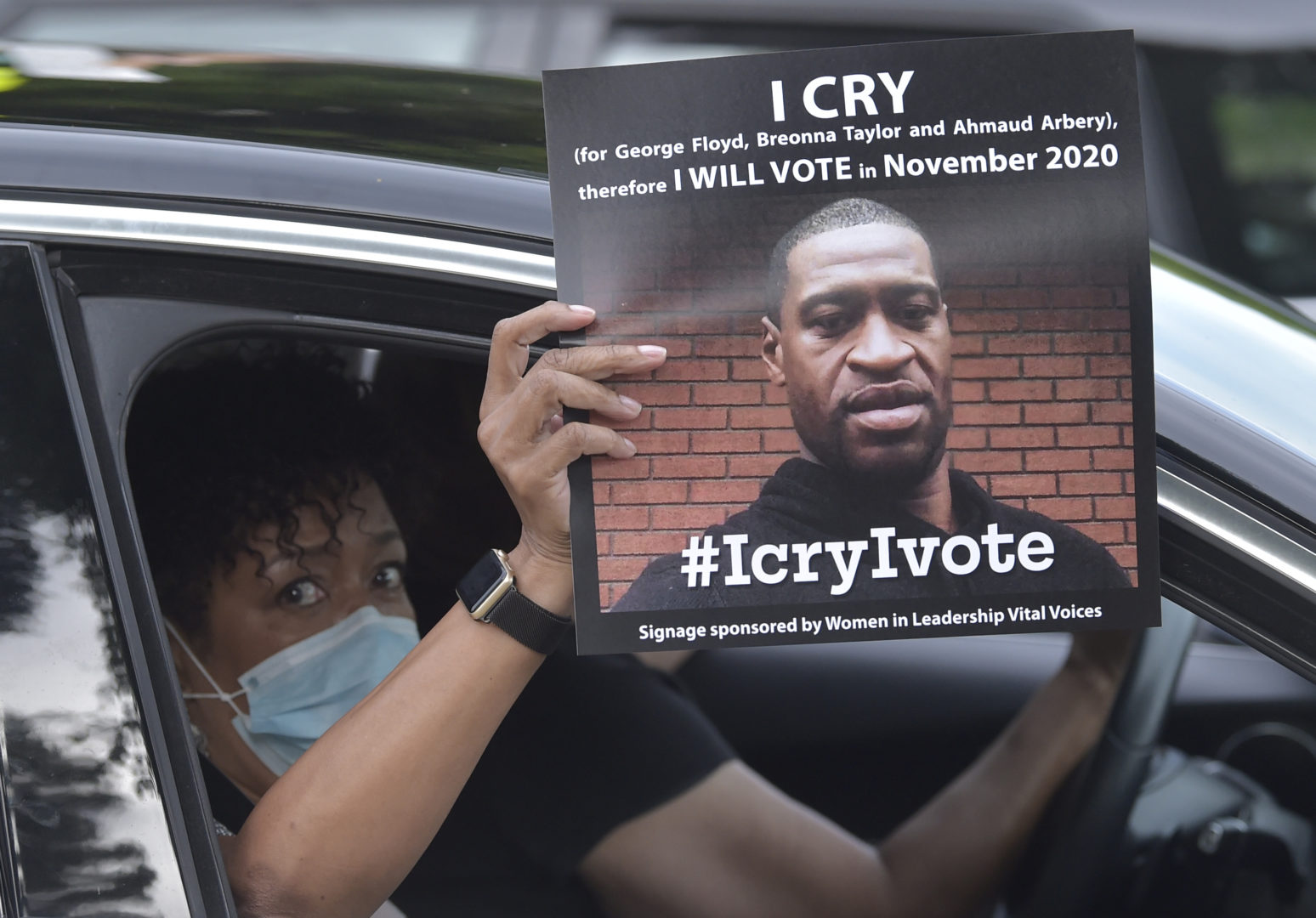 View Winners →
View Winners → 
Former Minneapolis cop found guilty of killing George Floyd
Attention on the murder of George Floyd last summer ignited protests globally against police use of force and the murders of unarmed Black people. With the guilty verdict handed down Tuesday, former Minneapolis police officer Derek Chauvin’s prison sentence of a possible 40 years can’t bring back Floyd, but it opens up a whole new dialog around police officers and how they deal with the public.
“The murder conviction of a police officer is an exceedingly rare event,” according to The New York Times.
“There have been only seven murder convictions of officers for fatal police shootings since 2005, according to Philip Stinson of Bowling Green State University. That suggests the chances of a killing by the police leading to a murder conviction are about one in 2,000.”
The reaction from officials all over the country has been swift and poignant.
Senate Majority Leader Chuck Schumer, D-N.Y., said he’s “thankful for George Floyd’s family, friends, and loved ones that justice has been served.”
“This guilty verdict serves as an official proclamation of what so many of us have known for nearly a year: George Floyd was murdered by an officer who was sworn to protect and serve,” he said in a statement.
Like many activists and leaders, Schumer warned not to “mistake” the verdict as “evidence that the persistent problem of police misconduct has been solved.”
Rep. Judy Chu, D-Calif., in a written statement said the verdict “brings accountability for the murder of George Floyd, who should and would be alive right now were it not for a system that permits and too often excuses the use of excessive force – predominantly against Black people.”
She, however, acknowledged that no verdict “can ever heal the wounds left by the loss of a loved one” and outlined some reforms. “We must spare any other family from feeling such a preventable loss, and that means passing criminal justice reform,” she said. “Ending the use of dangerous tactics like choke holds and no-knock warrants and limiting the immunity that shields police from accountability for their actions are essential for ending police brutality, and that is why the Senate must follow the House’s lead and pass the George Floyd Justice in Policing Act today!”
Sen. Tim Scott, R-S.C., the only Black Republican in the chamber, said the guilty verdict provides “renewed confidence in the integrity of our justice system.” The sentiment was echoed by Rep. Jim Jordan, R-Ohio, who said the outcome was proof “the justice system works.”
However, not everyone agrees that the conviction is proof of a working justice system.
Nekima Levy Armstrong, a civil rights attorney and activist in Minneapolis, told NPR that though Chauvin’s conviction along with charges filed against Brooklyn Center Officer Kim Porter in the death of Daunte Wright signal a “huge paradigm shift,” it ultimately was not the justice system that produced these results. “This did not happen because the system worked. This happened because the people put in the work. At every hand, we had to press for the officers to be fired, for them to be charged, for there to be more serious charges and things like that,” Armstrong said.
Similarly, Simon Balto, assistant professor of history and African American studies at the University of Iowa, told Politico the conviction “allows for those who are within or who support that system to say that it “works” — to claim that the verdict is proof of the system’s supposed fairness and justness. But it doesn’t work. It isn’t fair. It isn’t just. If it were, George Floyd would be alive. Daunte Wright would be alive. Adam Toledo would be alive.”
Balto says that Chauvin’s conduct was not irregularity in police tactics. “American policing relies on the constantly existing threat of violence as a means of coercing cooperation. And that routinely, relentlessly escalates into worse forms of violence, such as what Chauvin did to Floyd.”
He warns against claims that the verdict will lead to transforming policing. “Until people understand that the murder of George Floyd was the outcome of everyday police work, not an exception to it, this miserable system will remain as it is,” he said.
Fordham Law professor John Pfaff told Vox that “seeing the conviction as a success ignores the fact that Chauvin should perhaps never have been a police officer to begin with or, if he was, he should never have been going after a $20 bill in this way — in every way the system failed. While punishing Chauvin is critical and essential accountability for the harm that he did, it doesn’t address the bigger systemic failings that got us here.”
The trial coalesced with the police shooting of 16-year-old Ma’Khia Bryant in Columbus, Ohio only 30 minutes after the verdict was read.
Before that, last week ago Sunday spurred a series of protests and vandalism only 10 miles away from where the trial was taking place. The female officer who shot Daunte Wright “accidentally” has resigned under the considerable media attention and pressure from within the Brooklyn Center Police Department. Police Chief Tim Gannon also resigned.
CNN pointed out that the killing of Wright, 20, is “at least the third high-profile death of a Black man during a police encounter in the Minneapolis area in the last five years, after the shooting of Philando Castile in Falcon Heights in 2016 and the death of George Floyd in Minneapolis last May.”
According to multiple news reports, Wright’s father, Aubrey Wright, said he “can’t accept the chief’s explanation that Sunday’s shooting was accidental.”
“I can’t accept that — a mistake? That doesn’t even sound right,” he told ABC’s “Good Morning America.” He cited the Porter’s 26 years with the department.
Additionally, CNN reports that “A U.S. Army officer is now suing two Virginia police officers after they pointed guns at him, pepper sprayed him and pushed him to the ground during a traffic stop last December for what the officers believed was a missing license plate on his new SUV.
“The lawsuit by 2nd Lt. Caron Nazario, who is Black and Latino, is seeking $1 million in compensatory damages, claiming two Windsor, Virginia, cops violated his rights guaranteed under the First and Fourth Amendments.”
After the verdict, President Joe Biden and Vice President Kamala Harris addressed the nation. Biden said that while the verdict “can be a giant step forward,” it’s “not enough.”
“It is not just a Black America problem or a people of color problem. it is a problem for every American,” Harris said. “It is holding our nation back from reaching our full potential.”









































































































